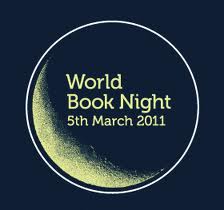You have no items in your cart. Want to get some nice things?
Go shopping
World Book Day, which just wrapped up on the 3rd March, is an initiative which saw schoolchildren cash in tokens for more than 600,000 specially-published titles, was an incredible success. Last night, adults put the kids to bed, slipped into something more comfortable and swapped their favourite titles for the inaugural World Book Night, a similar event aimed to proffer “an accessible work of enduring quality” to adult readers in the UK and Ireland. Organised by a handful of media and publishing heavies, the book giveaway comprised 40,000 copies of each of the 25 selected titles. Twenty thousand ‘givers’ handing out or swap 48 copies of their chosen title with whomever they choose in what sounds like the literary world’s answer to a swingers party.
According to many, this initiative is about as well thought out as the Battle of Little Big Horn. As they do, trolls have been taking issue with the event’s every aspect, from the authors involved to the attendant rubbish generation of printing and passing out so many tomes. A handful of bookmongers have also emerged from the woodwork, concerned that the hundreds of thousands of free books injected into the litereconomy will flood the market.
Here’s a critique yet unheard: it’s all a bit condescending, isn’t it? Lettered paladins tossing out books like military rations to the mewelling, groupthinking great unwashed? From where comes the idea that it’s necessary to ‘get people reading’? Get people working, get people using contraception — now that I understand. But reading? Since when do people not read, for one, and since when is it in the public interest to have poetry and prose shoved down their throats?
There seems to be a great mythology about how much (or little, properly) most people read. The amusingly luddite idea that the use of technologies like Twitter and text messages have caused fully-grown adults to unlearn basic literacy has gained incredible credence. The 140-character tweet and the one-line facebook status update has apparently lobotomised a generation, rendering them incapable of paying attention long enough to read a road sign, or of crafting a sentence that’s even vaguely sensical. Hence ‘quitting Facebook’ and being anti-text are two of those things things my desperately disestablishment friends (bless ’em) are doing, along with learning obscure musical instruments and growing their own tomatoes. But most of us, I think you’d agree, spend a shocking proportion of our time reading and writing — whether perusing conspiratorial politics blogs or exploiting our right to free speech with the Guardian’s Comment function. Hardly Homer, but still.
Equally amusing is the very Hollywood idea that a love of this ‘lost art’ can be inspired in people with a gesture of kindness, a la Mr Holland’s Opus. I wonder if most of the 48 friends on the receiving end of things will do much more than toss their book bequest (or compost, in my friends’ case) – there is that whole issue of ‘personal taste’ to bungle things up. And in this, an era of scambaiting, pyramid schemes and scientology, most people will have enough sense so as to be deeply sceptical of getting something for nothing – even if it is 300 pages of indisputable genius.
If it didn’s smell so strongly of spin, I’d say that World Book Night is premised on the idea – wrongheaded if not a little bit patronising – that people don’t read. Book bequests are still welcome, though – I’ve got a wobbly table that needs propping up.
Sandra Smiley.
You can find out more about World Book Night and join the debate at www.worldbooknight.org.
Do you agree with Sandra and think that we are still a nation of readers, albeit it with different habits – whether it be online blogs, pocket-sized publications (like Litro, for example), social networking sites or newspaper comments pages – and that World Book Night was founded on an unstable premise? Or, in a time when bookshops are struggling and libraries are threatened with closure, do you disagree entirely and believe that World Book Night was a success, or at least a good attempt at encouraging the adult population to read more? Please let us know your thoughts in the comments below.

About Sandra Smiley
Sandra spends her days working in PR and moonlights as a feature writer and blogger. You can follow her on @sandraqsmiley.




